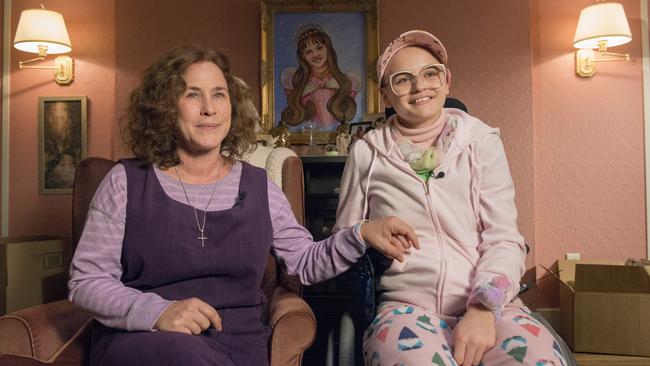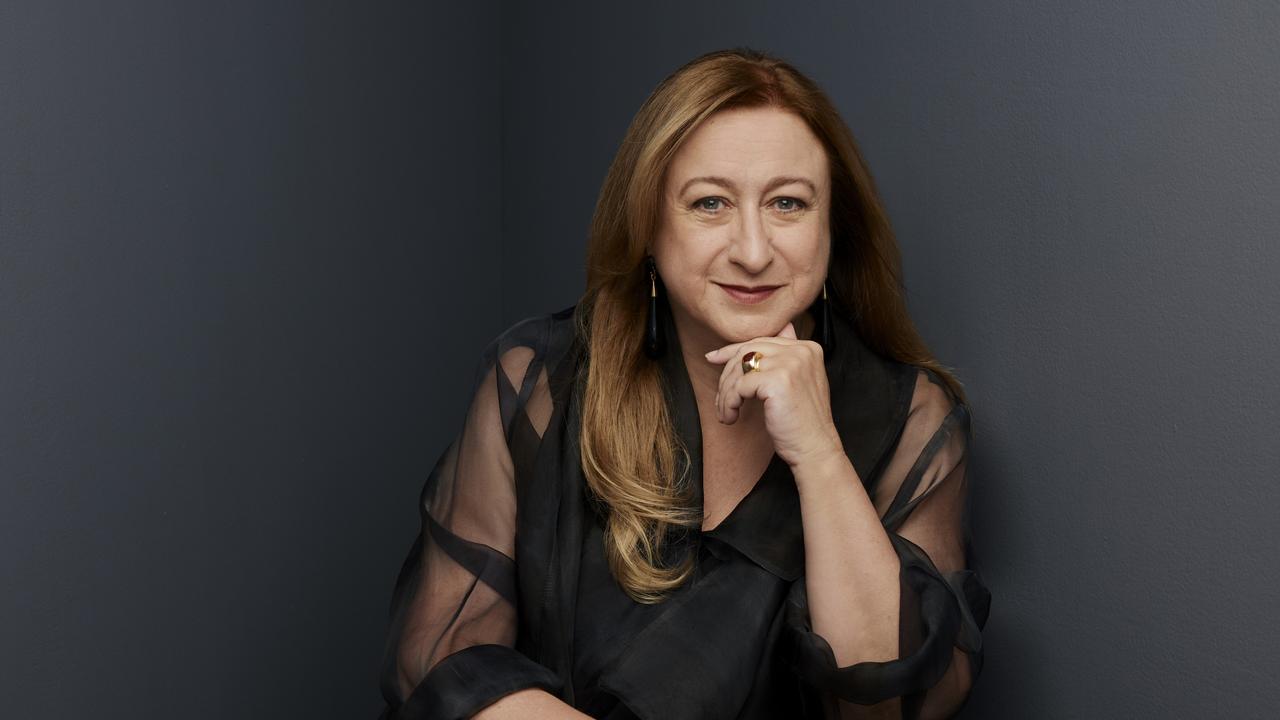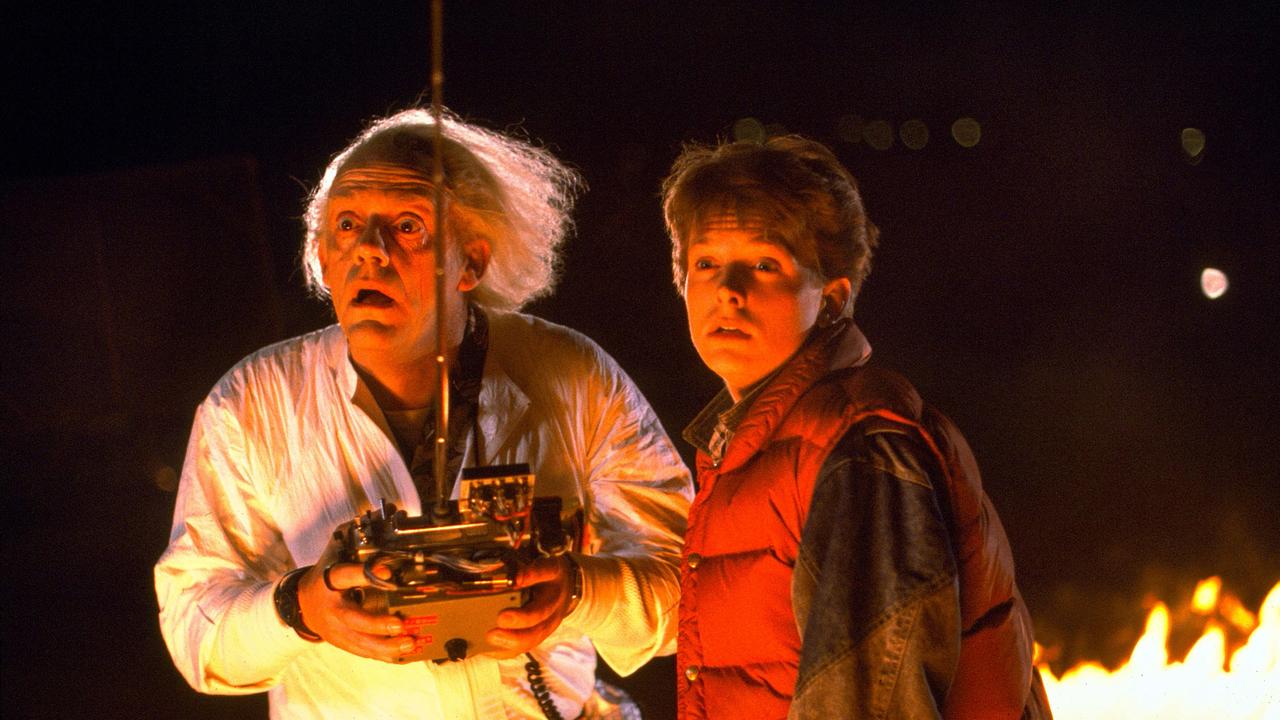The Act: Dee Dee & Gypsy Rose and the anatomy of a murder
A true crime “horror show” about a mother, daughter and Munchausen Syndrome raises ethical issues but is still addictive.

True crime is still having a big moment in TV. As Sarah Weinman points out in her introduction to the book, Unspeakable Acts: True Tales of Crime, Murder, Deceit and Obsession, while its beginnings are in the 16th century, it has felt different lately. “More highbrow. More participatory. More investigative. More in the public interest. More reflective, critical, even postmodern.” She’s right in that we are suddenly past that stage of the lurid pulp expose, which liberally mingles fact and fiction, or those slickly produced tabloid tales that come off the Investigation Discovery assembly line.
The genre seems to satisfy an increasing need for story in our lives, urgency having attached itself to the idea of tales taken directly from life and not from fiction. Especially, it seems, lives framed by pedestrian chaos and affected by violence. One of the latest productions in the prestige true crime genre is the highly cinematic The Act: Dee Dee & Gypsy Rose, the first in an anthology series from journalist Michelle Dean and writer and producer Nick Antosca, creator of the horror-anthology series Channel Zero. The idea appears to be that they would feature crimes with a strong element of deception and performance.
Hence, The Act. It’s the twisty story of Gypsy Blanchard, played by Joey King with a kind of irresistible inscrutability and sweetness, a girl who becomes desperate to escape the increasingly lethal relationship she has with her controlling and overbearing mother, Patricia Arquette’s Dee Dee, a performance of dogged stoicism that may be Arquette’s finest.
It arrived recently on SBS On Demand, and it has all of the prestige sheen of its celebrated contemporaries, Dirty John, The Jinx and Wild Wild Country. The Act is a rare prestige drama created by mainly women; four of its six writers are women and five of eight episodes were directed by women. Laure de Clermont-Tonnerre (The Mustang) directed the pilot, and it’s conspicuously well made, though it’s easy to see the fingerprints of the accomplished Antosca all over the series.
The story fascinated millions after Dean published on Buzzfeed her article, “Dee Dee Wanted Her Daughter To Be Sick, Gypsy Wanted Her Mom Murdered”, about their harrowing and tragic story. It also grabbed the attention of Antosca, one of the six million people who read the story when it went viral. “I read it as a consumer of true crime and somebody who’s interested in complicated stories about human nature,” he says.
He negotiated an option on Dean’s story and took it to US streamer Hulu, which financed the production. Dean and her story were crucial to Antosca’s approach. “What was important to us was to have the real estate to really explore the character journeys,” he says. But Dean told SlashFilm: “The show though isn’t a factual retelling of the case. It’s more inspired by the case, something like that. Over the years this case has become like an ocean, for me, of information. Apprehending that ocean is a big part of constructing the show.”
As co-creator, co-producer and one of the writers, Dean was able to bring 1000 pages of medical records and extensive interviews with most of the people involved, including Gypsy. “So in the writers’ room, any time we’re wondering, ‘Is this plausible, is this believable, is this roughly what happened?’, Michelle could give us the raw material so that we could be true to the spirit of the truth, even if we were rearranging things a little bit,” Antosca says. “This is not a show about a murder. It’s a show about the relationships that led to the murder … What drew me to it wasn’t the crime. It was the many years over which these two women shaped each other and led to that.”
Now, with the truth revealed, the details known to millions, it seems a relatively simple story but, as this series reveals, the reality was complex and disturbing even for the lurid world of TV true crime.
It’s the story of a daughter, and Joey King is extraordinary in the role, stricken by cancer, muscular dystrophy and a host of other diseases but still smiling every chance she gets, and a mother, a large, affable-looking woman, dogged, and almost relentlessly caring, devoted to giving her daughter everything she wanted.
The story plays with time, from the eerie discovery of a body in the Blanchard home to the arrival of Gypsy and Dee, seven years earlier, forced by Hurricane Katrina to travel north to Aurora, Missouri, and move into the pink house that Habitat for Humanity built for them. It’s an oddly spacious home with special amenities built for Gypsy, such as the long ramp up to the front door.
It’s a kind of fairy story at first, a performance that has the world in its thrall. Dee Dee is the best mum in town and Gypsy is an innocent, disabled child with a cute, high-pitched voice. But happily ever after quickly starts to fall apart. Their new neighbour, Mel (Chloe Sevigny), a single mum who lives with her rebellious daughter, Lacey (AnnaSophia Robb), is a little suspicious that something doesn’t seem right with their story. But poor Gypsy Rose is so alarmingly ill, Mel and her daughter help welcome them into their new community.
They were the picture of inspiration and hope. But then Dee Dee turns up dead, bludgeoned to death in her home, and her sickly daughter is nowhere to be found. The community is in shock. What if Gypsy Rose has been kidnapped by the murderer?
The reality is worse. This turns out to be a story of horror. Dee Dee is a mother with Munchausen syndrome by proxy, a psychological disorder marked by attention-seeking behaviour by caregivers inflicted on those in their care, while Gypsy is a daughter driven to kill in order to escape the abuse. The world, meanwhile, was fooled by the pair’s deception until it was too late.
Gypsy is abused by her mother for nearly two decades and undergoes numerous, invasive medical procedures at her mother’s insistence — including the surgical installation of a feeding tube. Nearly all of these procedures are later revealed to be unnecessary.
As Gypsy grows up and discovers that she is not in fact ill, she aggressively pushes back against her mother’s abuse, something we see beginning to happen in the first episode. Ultimately, Gypsy snaps, despite still loving her mother.
“Gypsy is such a complicated character,” says Antosca. “She’s deceiving the world along with her mum, but she’s deceiving herself too. Ultimately, she’s using the skills of deception that her mum taught her, which are the only thing she knows at that point, against her mum.
“She had access to countless drugs, so she could have poisoned her mum. Or she could have stabbed her herself. But she couldn’t do it, because she loved her mum. So she had to use the skills that her mum gave her to reach into the outside world.”
In 2015, Gypsy, who thinks she is 19 at the time but is really 23, persuaded her boyfriend, Nicholas Godejohn (a wonderfully creepy Calum Worthy), whom she had met online and who had a substantial history of mental illness, to do something drastic.
While brilliantly written, directed and produced, The Act does, as many critics have suggested, raise ethical concerns about the format and context. Is this story being told because of some broader societal context or because it is just so weird? What moral lessons can be learned from this tragic story? Or, in making such compelling entertainment out of it, is it seriously questionable? Does any of this matter?
I was hooked from the first episode and couldn’t wait to see where The Act would take me on this journey of what Dean calls “darkened femininity”, and I enjoyed the almost Stephen King-like atmospherics, the stylised surrealistic effects. And performances of rare stature.
As Acosta says: “I think it would be perfectly fine to characterise The Act as a horror show. It’s also a thriller. It’s also a coming-of-age story. It’s also a character drama. It’s true crime.”
The Act is streaming now on SBS On Demand.
What goes here?



